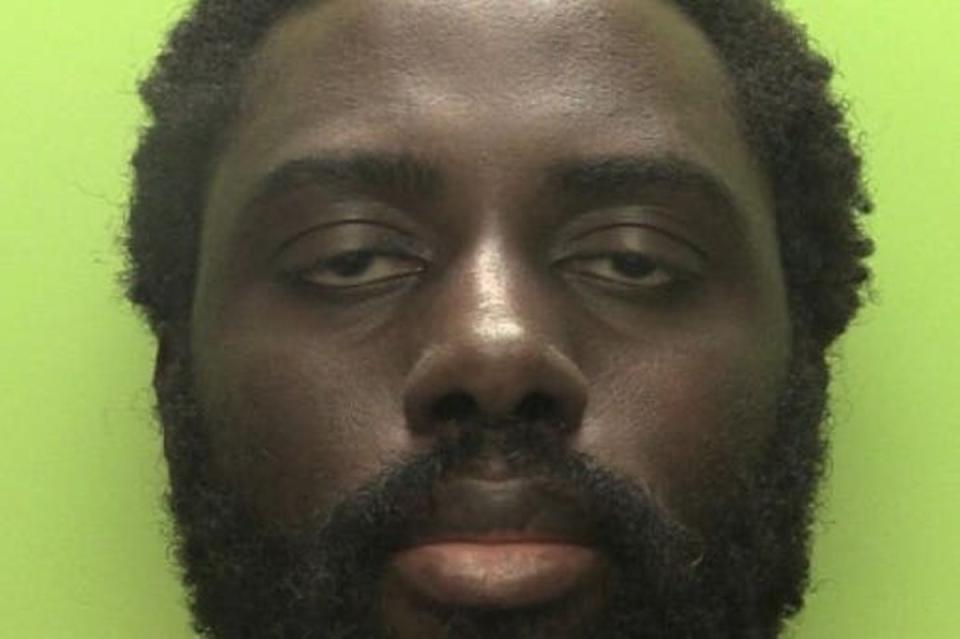Watchdog calls for murder law review amid outrage over Nottingham triple killer’s manslaughter pleas
A watchdog has called for a review of murder laws following an outcry from victims’ families over the decision to allow the Nottingham triple killer to plead guilty to manslaughter.
Inspectors found the Crown Prosecution Service (CPS) complied with the law when they accepted Valdo Calocane’s guilty plea to manslaughter by diminished responsibility over the deaths of students Barnaby Webber, 19, Grace O’Malley-Kumar, 19, and school caretaker Ian Coates, 65.
But, in a report published on Monday, His Majesty’s Crown Prosecution Inspectorate (HMCPSI) called for the government to consider reviewing how homicide is categorised and highlighted areas where the CPS could have handled the case “better”.
Reacting to the report, Emma Webber, whose son Barnaby was killed in the attack, joined calls for an overhaul, adding that current laws mean that “murderers can get away with murder”.
She said: “We’re disappointed by not entirely surprised. What I would say is that at the moment in this country, if you commit murder and you’ve got mental health issues, then it’s very unlikely that you are going to be tried for murder and it’s abhorrent that it could be downgraded to manslaughter.”
Dr Sanjoy Kumar, the father of Grace, added: “I think the first question you have to ask… is: can a paranoid schizophrenic commit murder in this country?
“Because it seems to me that you can’t, and that’s impossible for us to understand.”

Calocane, who had been diagnosed with paranoid schizophrenia, pleaded guilty to manslaughter, meaning he did not stand trial for murder. The triple killer was handed an indefinite hospital order in January, prompting grieving family members to say “true justice” had not been served.
Mr Webber’s mother had accused the police and the CPS of presenting her family with “a fait accompli that the decision had been made to accept manslaughter charges”.
“At no point during the previous five and a half months were we given any indication that this could conclude in anything other than murder,” she said. “We trusted in our system, foolishly as it turns out.”
Attorney General Victoria Prentis ordered the review of how the CPS handled the case and ask the Court of Appeal to review the sentence.
Inspectors said the CPS complied with the law and met their obligations to the families – but admitted the case highlighted areas where families could have been better supported.
The report also called for the government to revisit whether homicide should be considered in tiers, as recommended by the Law Commission in 2006. This would make three levels of charge available to prosecutors – first-degree and second-degree murder, as well as manslaughter.
Inspectors found that if the 2006 recommendations had been accepted and implemented, “the unlawful killings in this tragic case would have been categorised as murder, albeit second-degree murder.”

It also called for the government to look at whether the culpability of the person who commits murder should be reduced to manslaughter by reason of diminished responsibility.
It further asked for a review of whether victims should be entitled to be ‘consulted’ about decisions taken as opposed to being ‘informed’.
Chief Inspector Anthony Rogers said: “This was a horrific and tragic case. Valdo Calocane brutally killed three innocent people, and violently attacked three other victims. My thoughts remain with all those involved in this tragic case during this devastating time.
“It is unimaginable having to deal with the death of a loved one under such horrific circumstances, but having to deal with the criminal justice system at a time of heartbreak and grief adds a further dimension of challenge.
“To better support victims and increase public trust, we call on the government to consider amending the homicide law, review the support provided to victims of crime in serious cases such as this, and provide greater clarity about the role of victims in the criminal justice system.”
Julian Hendy, the director of the Hundred Families charity that supports the relatives of the victims of mentally ill killers, described the findings as “very disappointing” and questioned whether the watchdog had “critically evaluated the evidence”.
He added: “They appear to have accepted without question or challenge what they have been told. There are serious questions about the quality of evidence and decision-making in this case that remain unanswered.
“This report is clearly a missed opportunity. It will do little to reassure the affected families that agencies are really learning from this tragedy.”
Calocane’s sentence to an indefinite hospital order has also been referred to the Court of Appeal for being “unduly lenient” by the attorney general.
Prime minister Rishi Sunak previously promised the victims’ families that “we will get the answers” but their calls for a public inquiry have so far gone unanswered.
Other investigations into the actions of police and mental health staff continue.


